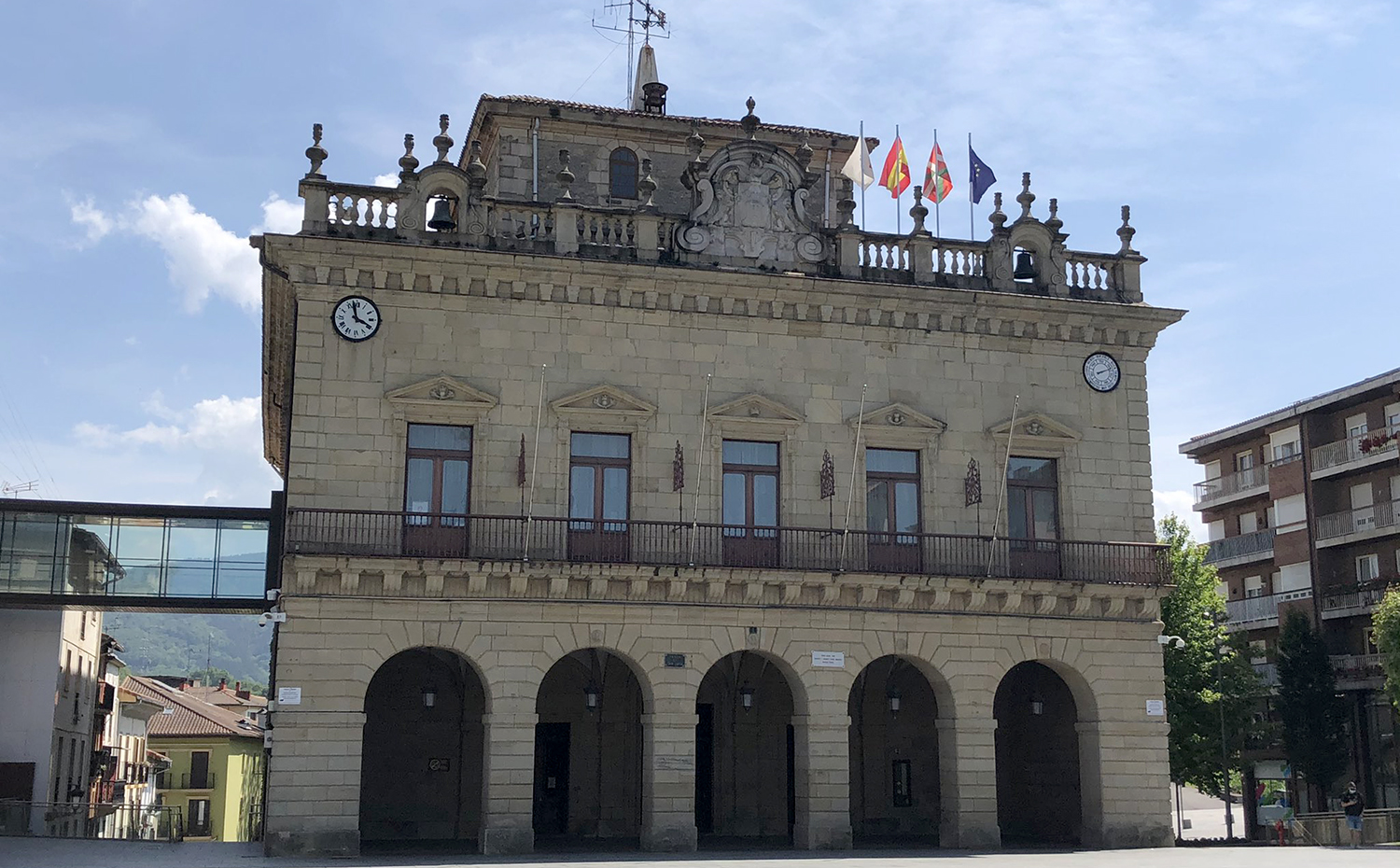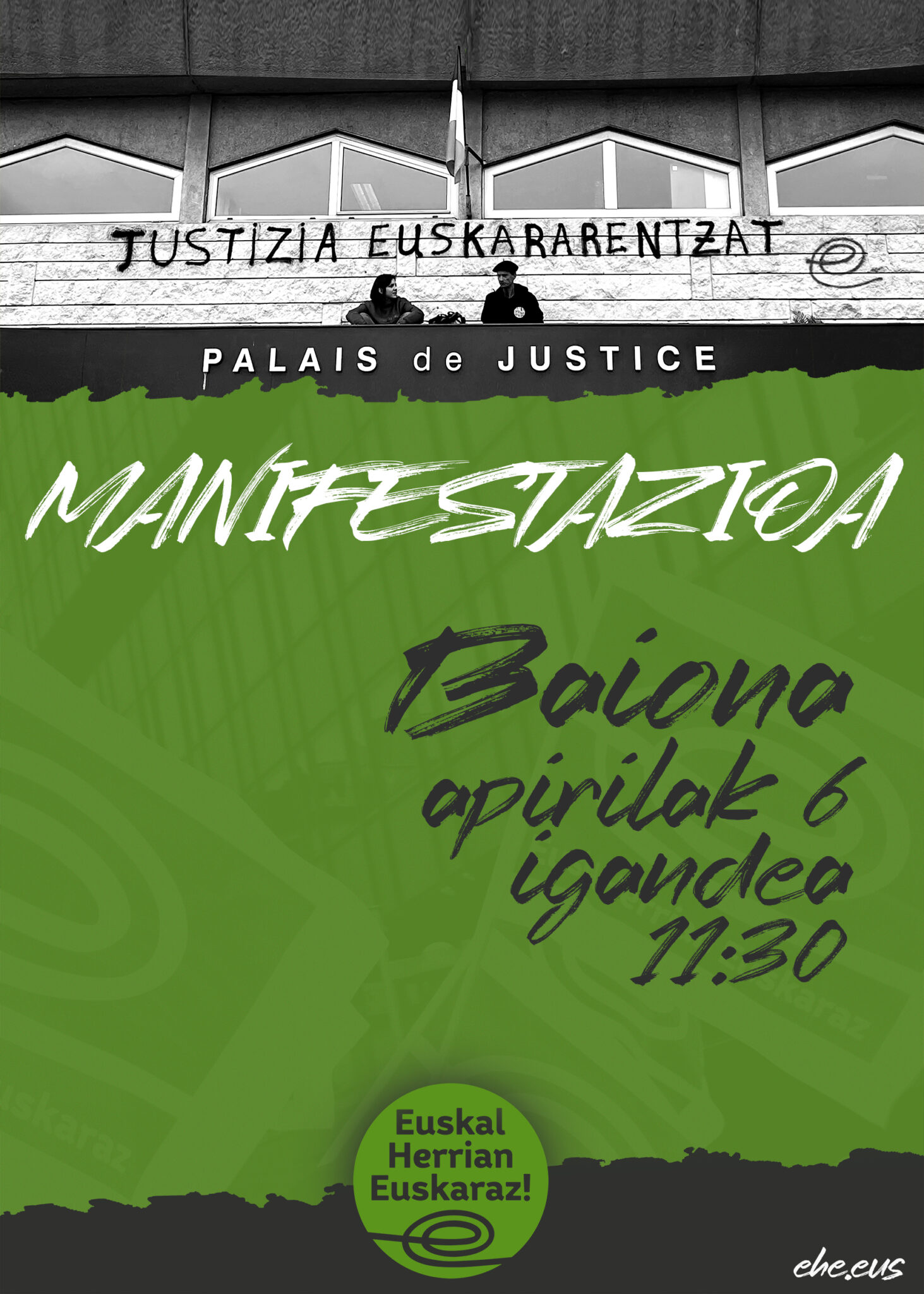Good doctors and Basques: In Zumaia in 1856 they already knew who to choose
- Lately, the coronavirus has altered us a lot in the way of life and, in addition, we do not know what is going to come to us; but if we look at our past, we will see that the plagues and the pandemic were quite frequent: cholera, smallpox, flu… In addition, when they had to hire professionals to deal with them, the knowledge of the Basque country was also valued.

1855. The cholera hit Zumaia hard. In order to avoid contamination, the authorities took drastic measures: to ban fishing and the sale of fish, to remove and roast tomato plants (thinking that the disease was spreading through them), to burn dried octopus stored in the houses… However, 122 people died in Zumaia, including the incumbent surgeon, Zechariah Goya. At that time, the barber surgeon was a trade below the level of the doctor, but highly valued and necessary; he did everything: to heal the sick, to shave, to take teeth and blood, to help in deliveries…
In view of the damage caused by cholera and the size of the population, Mayor Eusebio Gurrutxaga proposed that, in addition to the surgeon, the doctor’s and the pharmacist’s place should be removed, and the City Hall accepted this. The following notice was inserted in the Official Gazette of Gipuzkoa: “I would like to point out that this City Hall has worked to create a doctor’s place with the annual salary of 9,000 revillion. The surgeon is also vacant with 6,000 reais annually and 16 reais for each assistive delivery. The candidates will be able to submit their requests to the secretariat of this villa, where the conditions are evident, within 30 days of the insertion of the official gazette of this province; warning that both students perform a specific task in the Vasconate language”[1]. In addition, the demand for Euskera was a fairly common practice and can be easily verified through the newsletters: In Lesaka, surgeon: “in the sense that the vasconate language had arrived”[2]; Angiozarren, surgeon: “Candidates to know the vascongested language”[3]; Surgeon in Anoeta: “Candidates who have to have knowledge of the Vasconate language”[4]; in Getaria, a surgeon physician: “warning that the teacher will have to be the vascongested language.”
Donostiarra Ildefonso Zabaleta Etxeberria was elected in 1882 as a doctor of Zumaia, a position he held until 2014. He was also a great singer (tenor) (photo: De Javier Carballo, de Badillo y Ovejero).
They elected the doctor, but it didn't last long, and they had to choose another one in 1856. The ediles opted for three candidates and voted which one they preferred, but were tied: two of them in favor of Manuel de Pedraza and the other two in favor of Toribio Ibaseta, with the third candidate (Mariano de Revilla), leaving the matter for the next plenary, but still did not agree, two and two, then the City Hall asked the Central University Court for reports: “The notes of both pretenders are good, but preferable those of Mr. Pedraza”; in addition, according to the mayor, the experience had to be taken into account: Pedraza had been working for fourteen years and Ibaseta had just begun. After the vote, two and two were tied. In the absence of agreement, they decided to move the matter to their meeting with the Senior Pupils, where they would be resolved.
José Ajuria Tauste (1882-1962), a doctor in Zumaia since 1916, faced the Spanish flu epidemic (photo: De Javier Carballo, ceded by Ana Mª Olaizola).
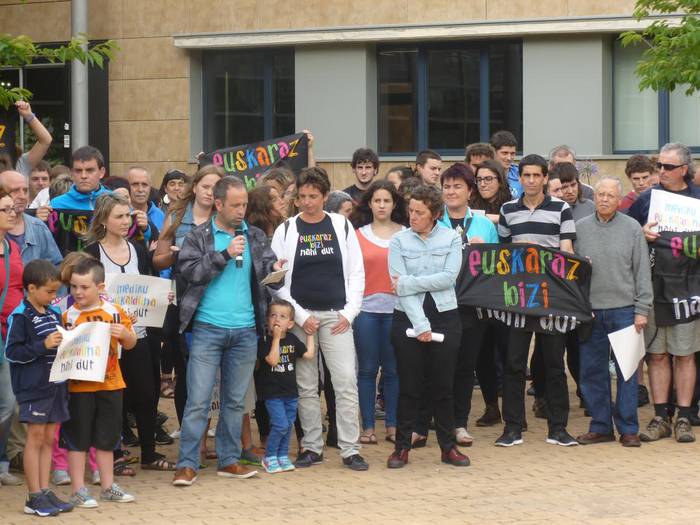
In addition to the councillors, eleven other farms in the town met to give explanations, and the mayor chose a candidate, Pedraza, who had better grades and more experience in the office. Then, another councilman, Sebastián Gartxotenea de Oikia, chose the other candidate, Ibaseta, who explained to the mayor that Pedraza had better notes, but that Ibaseta's were not bad, and stressed the main reason for choosing Ibaseta: “He stated that although Mr. Pedraza preferred by the University and He had more practice than Mr. de Ibaseta in his concept, he should be preferred because he possesses the vascongested language”[6]. Then another magnate, Nicolás Gurrutxaga (father of the mayor), took the floor and opposed the word of Gartxotenea, claiming another reason to support Pedraza: “Being the doctor to cure or study diseases rather, to take care of scientific knowledge and practice than the language and that he could not have had in the election”[7]; then Lino Uriarte spoke and affirmed that Pedraza had better notes, but that Ibaseta’s were not bad, so he had enough knowledge and, furthermore, as Euskera knew, he needed it.
After the vote, the Basque was elected, eight in favor of Ibaseta and six in favor of Pedraza, and from then on the theme of the Basque language appeared many times in other similar selections. Later on, in one of them, the Mayor of the Oikia neighborhood threatened not to pay his due: “The inhabitants of the valley of Oiquina will not become any of them as long as the doctor who assists them is Castilian.”[8] But, normally, in similar positions, the City Council expressly stated and requested the requirement to be Euskaldun (or to give priority). Examples include:
In 1857, for the choice of physician: “A request from a doctor from La Rioja, more Spanish than this one, could not make him more accustomed to the vacant place because of poor medicine [not to know Basque]”[9].
In 1860, physician: “And in the case of having had an aspirant to the vacant square that is now found when Castilian was available, they agreed not to be inconvenient to leave him whenever he would not have admitted vascongado”[10].
In 1865, the physician, “The one who possesses the base language is preferred”.
In 1866, Physician: “Being preferred among aspirants possessing the vascongested language”[12].
In 1867, physician: “That among the aspirants preferentially that which possesses the vascongested language; in equal competition and competition”[13].
In 1870, pharmacist: “The detainee has been discussed and bearing in mind that Don Juan Mayora brings together the quality of Guipuzcoan with that of his profession, and the vasconate language in this villa, chosen unanimously, is convenient.”
In 1873, physician, letter from Antonio Almansa, from Bolaños (Ciudad Real): “In the Gaceta [of Madrid], I have seen the vacancy of Surgeon Physician of that town announced,” and someone (surely the secretary) wrote the note at the end, below: “On 28, it was said that vascongates would be preferred”[15]
…
In addition to the examples of doctors and pharmacists, there are also other professions that demand or prioritize the Basque language: practitioner (1900, 1924), veterinarian (1903, 1911, 1931), director of the music band (1903, 1919), church organist (1905), municipal agent (1914, 1919), municipal secretary (1925), which would also be considered in Basque.
As you can see, it is not the trampoline question “But what do you want, good doctor or Basque?”, and before there were good professionals and Euskaldunes.
Don't make a fuss, don't confront, don't victimize... and obey. As oppressed subjects, in this case as Basques, we talk, how many times have we had to listen to them? Ironically, two years ago, at the Euskalale Independentiston Meeting, Esne Arzallus said: "We have arrived here,... [+]
Euskal Herrian Euskarazek manifestazioa deitu du apirilaren 6rako, 11n EHEko bi kide epaituko dituztelako. Hiriburuetatik autobusak antolatzen ari dira. Bi helburu bete nahi dituzte, batetik, epaituak izango diren bi kideei babesa erakustea, eta bestetik, euskararentzat justizia... [+]
ELA sindikatuak azaldu duenez, azken Lan Eskaintza Publikoaren oinarrien arabera, Ertzaintzarako eskainitako lanpostuen %20ak eta Udaltzaingoaren %30ak ez daukate euskara-eskakizunik. Gasteizen, adibidez, udaltzain-lanpostuen erdietan, 24tan, ez dago euskara-eskakizunik.
Ba al dakizue frantses batzuk harritu egiten direla mugaren alde honetan ere euskaldunak bagaudela jakitean? Ba bai, harrigarria bada ere, behin, Donostian, frantses batzuei entzun nien sinetsi ezinik beren buruari galdetzen: “Saint-Sébastien est au Pays... [+]
"No entiendo, en castellano por favor" eta gisakoak ohikoak dira eskolako guraso Whatsapp taldeetan, baina Irungo Txingudi ikastola publikoan euskara hutsean aritzeko modu erraz eta eraginkorra dute, behar duenarentzat itzulpen sistema berehalakoa ahalbidetuta.
Gabonetako argiak pizteko ekitaldia espainolez egin izanak, Irungo euskaldunak haserretzeaz harago, Aski Da! mugimendua abiatu zuen: herriko 40 elkarteren indarrak batuta, Irungo udal gobernuarekin bildu dira orain, alkatea eta Euskara zinegotzia tarteko, herriko eragileak... [+]









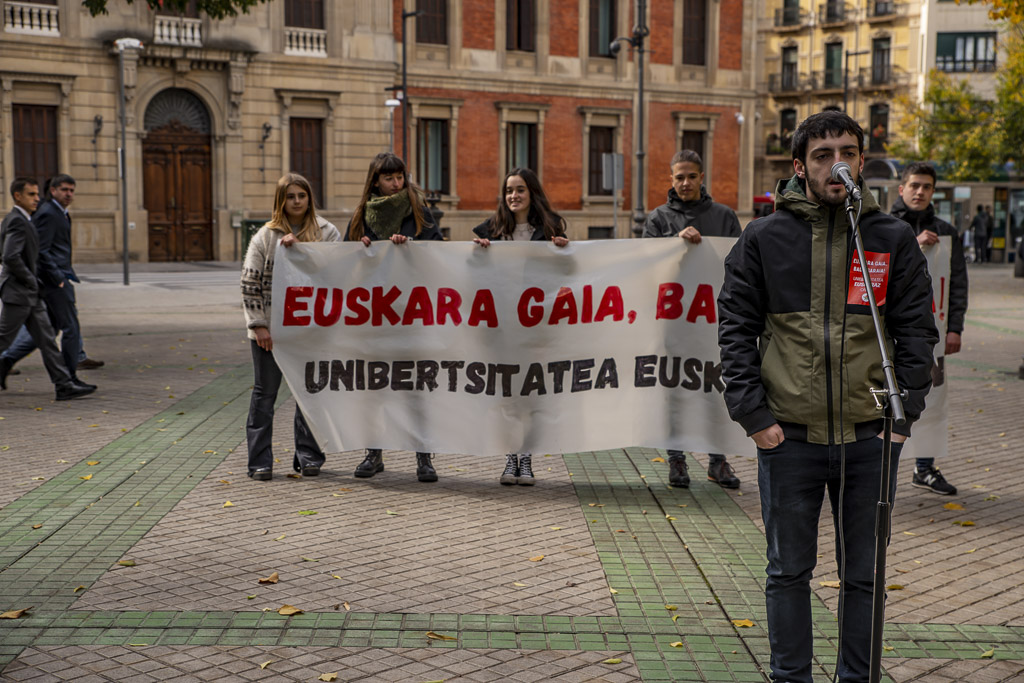
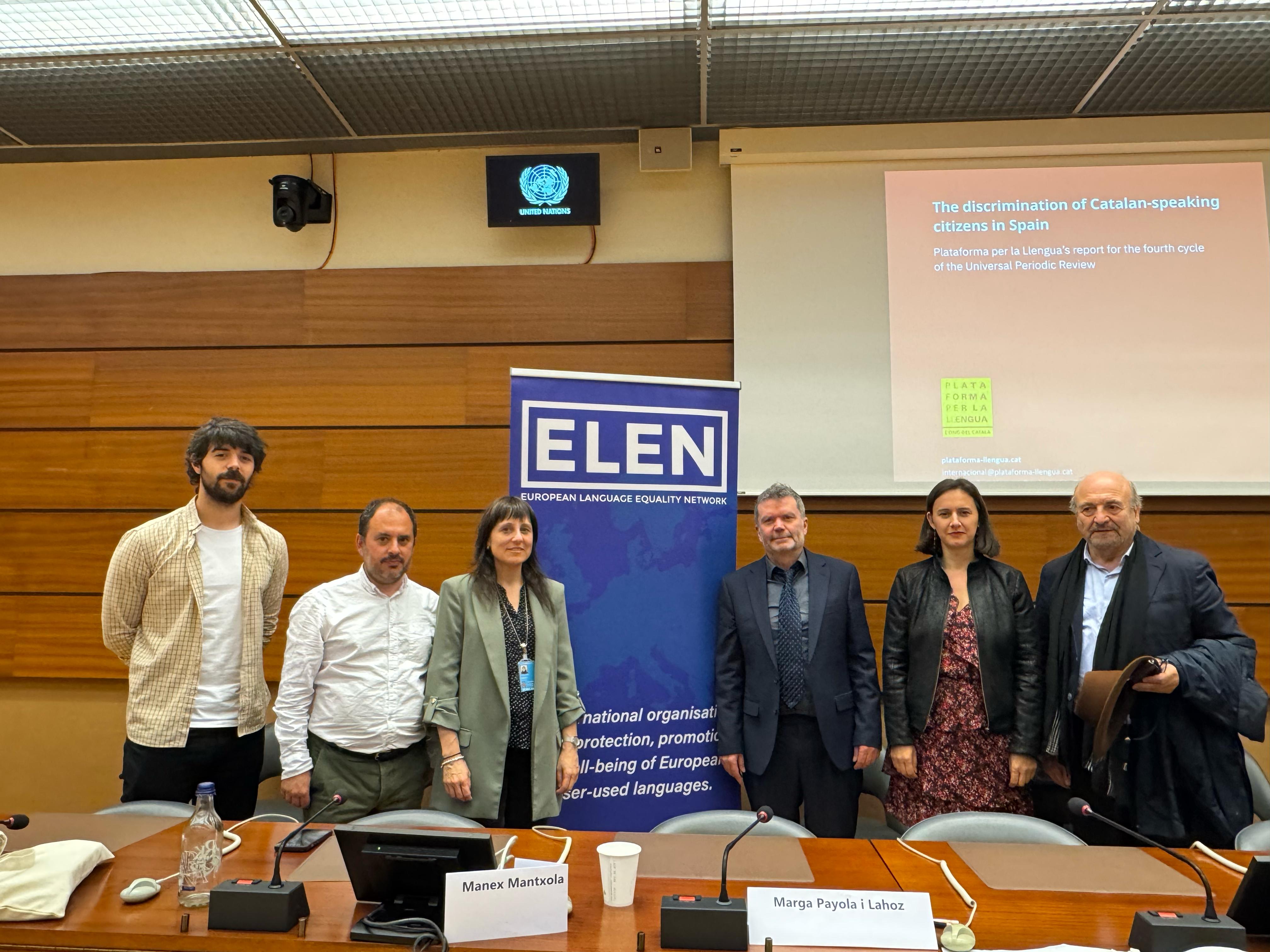




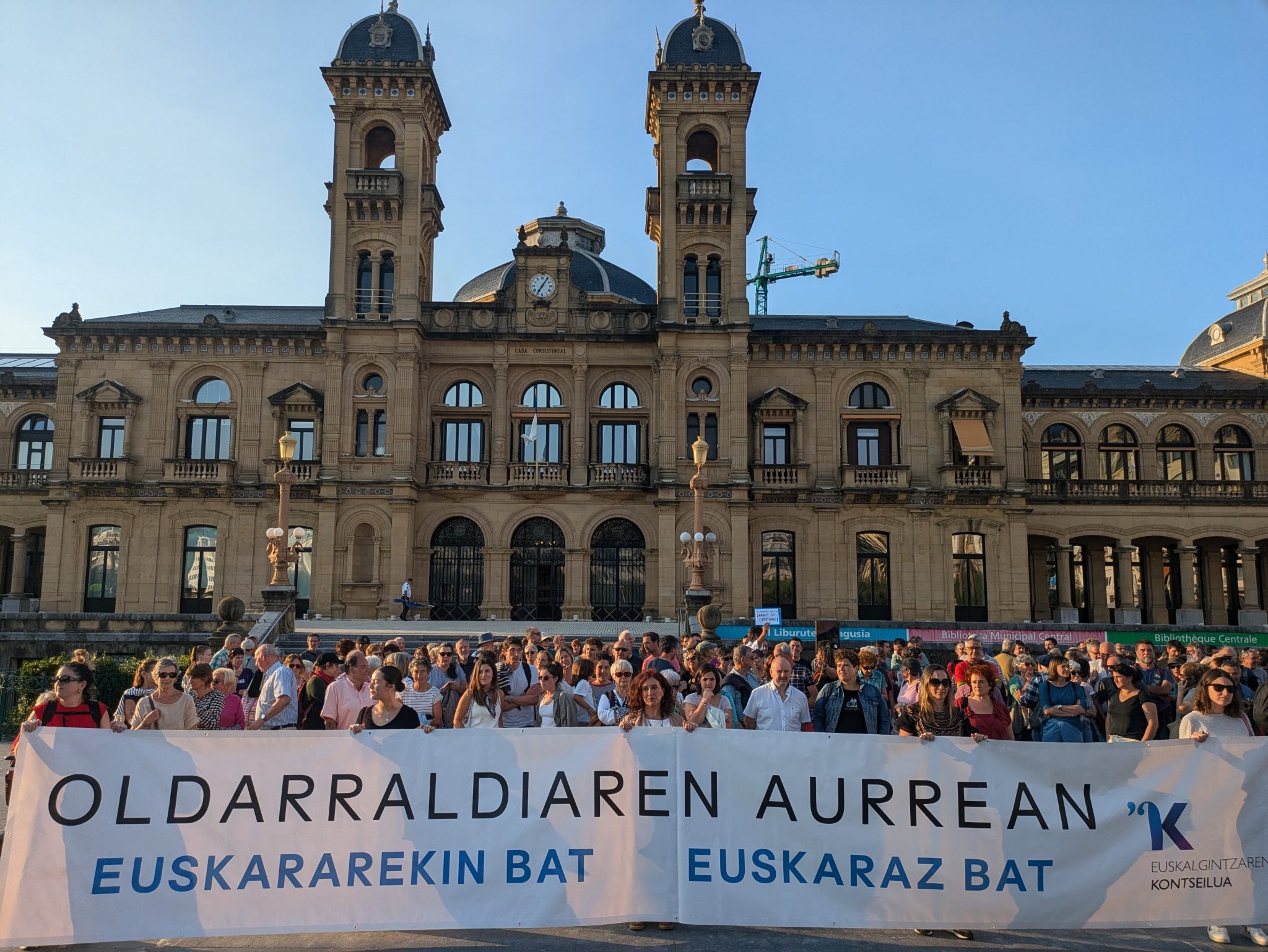

.jpg)
